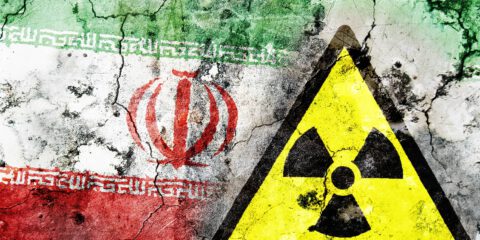The struggle over legal reform has caused enormous damage to the State of Israel. On the political level, the image of American backing has been undermined (even if, in practice, the defense cooperation continues as usual). On the economic level, the country’s credit rating has eroded. The public discourse in Israel reached new heights of acerbity and alienation. Above all, national cohesion was cracked primarily due to the IDF being used as a tool in the political debate and the threats to dodge service.
Israel is seen from the outside as a torn society, gradually losing its ability to function. Friendly countries, among them those who signed the Abraham Accords and threw their weight behind Israel’s strategic presence in the region, look in astonishment at an internal conflict that indicates the State of Israel has domestic problems that could dismantle its military capability. According to Nasrallah’s “spider web” theory, Israel’s enemies are gaining confidence and expect the internal tensions in the Jewish state to lead to self-destruction.
All this happens when, due to regional and global balance changes, Israel’s strategic environment becomes more problematic and dangerous than it has been for decades. Iran displays greater self-confidence – due to the effective suppression of internal unrest and the strategic connection to Russia and China – which translates into agreements with Arab countries, primarily Saudi Arabia. Syria, Iran’s ally, is reaccepted by the Arab world. Beyond that, Tehran – which progresses toward accumulating fissile material for nuclear weapons – understands that the US is busy elsewhere (Ukraine and China) and is reducing its involvement in the Middle East. This reality also increases the freedom of action of Iran and its proxies to escalate military confrontation with Israel.
These changes create a different security reality. We have already experienced multi-front armed conflict in recent days, admittedly on a small scale. The chances of deterioration into a wider conflict are more significant today than before. Thus, Israel needs to prepare for the tangible possibility of war. Given Iran’s progress toward a nuclear arsenal, it is also possible that we will soon reach a point where there will be no avoiding attacking Iran, even without American assistance. Such an event could turn into a multi-front war.
It is incumbent upon Israel’s leaders from both sides of the political aisle to put aside their differences or quickly reach a compromise that will allow the country to focus on the existential security challenges that lie ahead. The State of Israel must adopt a new paradigm that prioritizes security needs over other legitimate needs. The IDF and all elements of the security establishment must be removed from the political discourse while condemning the threats to dodge service. In addition, elected officials must ensure that the IDF has the necessary resources to prepare for a war that may be inevitable.
The Latin proverb Si vis pacem, para bellum (If you want peace, prepare for war) is most appropriate at this time.
JISS Policy Papers are published through the generosity of the Greg Rosshandler Family.
Photo IMAGO / ZUMA Wire / Eyal Warshavsky








 - בניית אתרים
- בניית אתרים